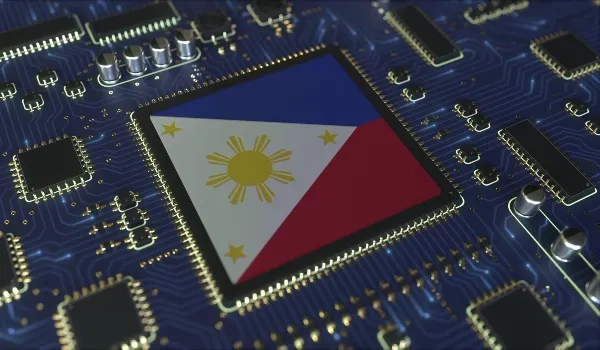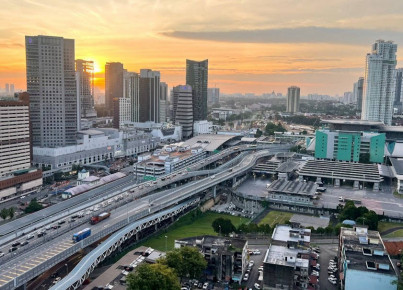From semiconductors to a new era of innovation: Manila is becoming a key actor
By Luca Menghini
In recent years, the Philippines has undergone a significant technological transformation, establishing itself as an emerging leader in the Southeast Asian innovation landscape. A key driver of this shift is the growing semiconductor industry, which is elevating the country's economy to a new level, positioning the Philippines for further technological advancement. From government initiatives to private sector investments, the Philippines is capitalizing on strategic developments to become a regional hub for advanced technologies such as semiconductors, nanotechnology, and artificial intelligence. As global demand for semiconductors and related technologies skyrockets, the Philippines is positioning itself to play a crucial role in shaping the future of the region's tech sector.
The semiconductor sector in the Philippines has experienced a significant boom, with an expected annual growth forecast of 10-15% from 2024 to 2027. This growth aligns with global trends as demand for semiconductors continues to rise, driven by advancements in artificial intelligence, 5G, and electric vehicles. As industries worldwide increasingly rely on advanced chips and their components, the Philippines is emerging as a vital player in the global semiconductor manufacturing and services landscape.
One of the primary factors contributing to the Philippines' growth in this sector is its role in the global supply chain. Its geographic proximity to major semiconductor producers such as Taiwan, China, and Japan provides a strategic advantage. As companies worldwide seek to diversify their supply chains and reduce reliance on a single source, the Philippines is seen as a reliable alternative. Its location in the Asia-Pacific region, combined with its advanced infrastructure, access to maritime trade routes, and developed air cargo capacity, enhances its attractiveness as a semiconductor hub.
The Philippines has long been part of the global supply chain for electronic components, excelling particularly in semiconductors with strong capabilities in assembly, testing, and packaging. Over 500 electronics and semiconductor companies operate in the country, including global giants like Texas Instruments, Philips, and Toshiba. The sector plays a vital role in the national economy, accounting for approximately 60% of the country’s total exports, with semiconductors being a significant part of this contribution. The Philippines is well-positioned to meet the rising global demand for semiconductor components.
One of the main drivers of this industry's growth is government support. The Philippines has made strategic moves to align with industrial policies that follow the global shift toward advanced technologies. The government's Inclusive Innovation Industrial Strategy (I3S) has been instrumental in boosting innovation and attracting investment in the high-tech sector, including semiconductors. This strategy aims to develop globally competitive industries by integrating Industry 4.0 technologies, such as automation, robotics, and artificial intelligence, into the manufacturing process.
Additional initiatives aimed at boosting the semiconductor sector include the Philippines' involvement in international efforts like the U.S. CHIPS and Science Act of 2022. Thanks to this Act, the Philippines has been selected as one of seven partner countries to benefit from a $500 million fund that will be used to support the development of the semiconductor industry. This partnership highlights the strategic importance of the Philippines in the global semiconductor ecosystem and strengthens its ties with major tech players. As part of this initiative, the Philippines has set an ambitious goal of training 128,000 engineers by 2028 to support the growing semiconductor industry, ensuring a steady supply of skilled workers to meet the sector's demand.
Despite its rapid growth, the Philippine semiconductor industry is facing challenges that must be addressed to maintain its competitive edge. The country still lags behind some of its regional competitors in terms of infrastructure and ease of doing business. There is a recognized need to improve transportation networks, power reliability, and regulatory frameworks to attract more foreign investment. Additionally, the industry faces a shortage of highly specialized talent in areas such as chip design and fabrication. Although the government and private sector are working together to upskill the workforce through initiatives like the Advanced Manufacturing Workforce Development (AMDev) program, the country must continue to invest in education and training to close the skills gap.
The success of the semiconductor industry is part of a broader trend of technological advancement in the Philippines. The country is expanding into other emerging technologies, including nanotechnology, robotics, and data science. The Department of Science and Technology (DOST) has been at the forefront of these efforts, launching initiatives aimed at increasing innovation across various sectors considered strategic. For example, the creation of an Advanced Manufacturing Center (AMCen) has allowed local industries to explore the 3D printing industry and additive manufacturing technologies, fostering innovation in sectors like aerospace, healthcare, and automotive.
In addition, the Philippines is investing in environmentally sustainable technologies. The DOST's Green Packaging Laboratory is developing environmentally friendly packaging materials, while the Metrology in Chemistry Laboratory supports local production and food safety standards by providing accurate measurements for quality control. These initiatives demonstrate the country's commitment to harnessing technology not only for economic growth, but also for environmental sustainability and public welfare.
As the Philippines continues to advance in the semiconductor industry and other technological fields, its impact on the Southeast Asian tech landscape is becoming increasingly evident. ASEAN countries, known for their policies of non-interference and consensus, are closely watching the Philippines' technological progress. The country's ability to establish itself as a hub for semiconductors has the potential to reshape the regional supply chain and boost the overall competitiveness of Southeast Asian markets in the global arena.
The strategic importance of the Philippines extends beyond its geographic location. The country’s young, well-educated, and English-proficient workforce, combined with its adherence to international labor standards, makes it an attractive destination for foreign investors. These factors, along with the government's commitment to fostering innovation through supportive policies and initiatives, position the Philippines as a rising star in the global technology sector.
In conclusion, the Philippines is at the forefront of a technological advancement in Southeast Asia, driven by the growth of its semiconductor industry and increasing investments in emerging technologies. While there are certainly numerous challenges to overcome, the country’s strategic position, government support, and international partnerships provide a solid foundation for sustainable growth. As the Philippines strengthens its role as a semiconductor hub, it will not only contribute to the global supply chain but also reshape the future of technological innovation in the region. The country's progress in these sectors signals a bright future for its economy and a stronger, more resilient position in the global marketplace.






